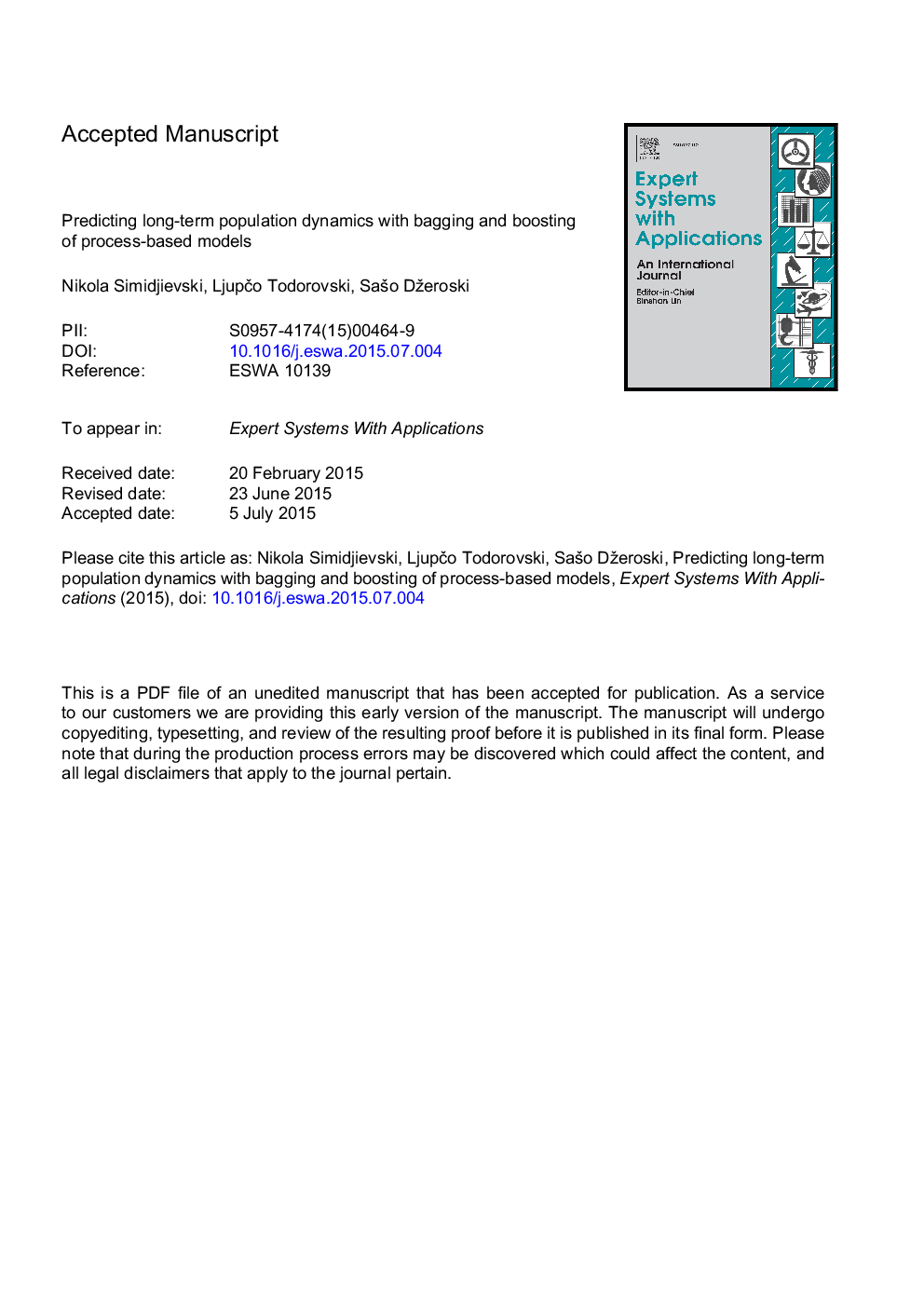| Article ID | Journal | Published Year | Pages | File Type |
|---|---|---|---|---|
| 10321766 | Expert Systems with Applications | 2015 | 52 Pages |
Abstract
Process-based modeling is an approach to learning understandable, explanatory models of dynamic systems from domain knowledge and data. Although their utility has been proven on many tasks of modeling dynamic systems in various domains, their ability to accurately predict the future behavior of an observed system is limited. To address this limitation, we propose the use of a standard approach to improving the predictive performance of machine learning methods, i.e., the approach of learning ensemble models. Previous work on ensembles of process-based models has been limited to proof-of-principle experiments with a single ensemble method (bagging) and in the limited perspective of explaining the currently observed system behavior v.s. predicting future system behavior. In this paper, we design a general methodology for adapting ensemble methods to the context of process-based modeling. Using the methodology, we implement the two approaches bagging and boosting of process-based models. We perform an empirical evaluation of the implemented methods on three real-world modeling problems from the domain of population dynamics in aquatic ecosystems. The results of the empirical evaluation show that ensembles of process-based models can lead to long-term predictions of the population dynamics that are more accurate than the ones obtained with a single process-based model.
Keywords
Related Topics
Physical Sciences and Engineering
Computer Science
Artificial Intelligence
Authors
Nikola Simidjievski, LjupÄo Todorovski, SaÅ¡o Džeroski,
